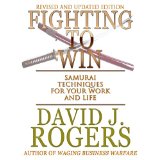Writers, are you having trouble getting published? I sympathize. Yet, be ready! In a month, week, or day or a few hours, or minutes, you may come in contact with that one editor, one agent you must have confidence exists here, there, somewhere, who will discover you, recognizing your potential, your craft, your genius the way young Faber & Faber editor Charles Monteith recognized novelist William Golding’s immense promise when no one else in the world did.
William Golding
Monteith was charming, witty, and sophisticated, qualities Golding did not possess. Golding’s novel Lord of the Flies was Monteith’s first editorial project; his first taste of an editor’s role. Some editors–very capable in other areas–are surprisingly poor at judging the work of beginning writers, but that was not the case with Monteith.
 The manuscript Golding submitted was worn, torn, and stained when Monteith first saw it. It had obviously been rejected by other publishers. Even Monteith agreed that this work of a public school teacher was over-written, disorganized, repetitive–a mess–and seemed never to get started. After many rejections Golding was losing hope of having the book published, of ever being published.
The manuscript Golding submitted was worn, torn, and stained when Monteith first saw it. It had obviously been rejected by other publishers. Even Monteith agreed that this work of a public school teacher was over-written, disorganized, repetitive–a mess–and seemed never to get started. After many rejections Golding was losing hope of having the book published, of ever being published.
But Monteith saw “something” in the book, and in Golding –the work of a unique talent–and fought for it at editorial conferences, almost coming to blows with a senior editor who was known to have impeccable taste in picking properties that would succeed. Monteith prevailed, staking his young reputation on the book. Lord of the Flies was published, caught on, and was published in many languages. Many Golding/Monteith novels followed. Monteith and Golding were editor and author friends the rest of their lives. William Golding was awarded the Nobel Prize in literature in 1983.
What might have happened had Golding’s beaten-up manuscript not caught the eye of the best possible editor for him? One day you may be fortunate: a Monteith may be excited by your work and discover you.
The Need to Be Discovered
The logical conclusion of the process of serious writing is to see the work published. Before writers get published they have to be discovered, to  be recognized as a person with a talent that can generate revenue. When a writer is discovered by an agent or publisher, their life changes for the better. This post is about writers who were discovered, then published, and found success–perhaps more success than they expected. There are so many writers with all the talent in the world who are trying very hard to be discovered by an agent or publisher who is trying as hard to discover them. There is a good chance that many writers we read would never have been published had they not been discovered by the right agent and a right publisher.
be recognized as a person with a talent that can generate revenue. When a writer is discovered by an agent or publisher, their life changes for the better. This post is about writers who were discovered, then published, and found success–perhaps more success than they expected. There are so many writers with all the talent in the world who are trying very hard to be discovered by an agent or publisher who is trying as hard to discover them. There is a good chance that many writers we read would never have been published had they not been discovered by the right agent and a right publisher.
Harold Kushner
A friend of mine was the late Rabbi Harold Kushner. He too was discovered by an editor with insight and moxie. Harold personally hand-carried his manuscript to publisher after publisher in New York and Boston. Every publisher rejected When Bad Things Happen to Good People. Editors said the book couldn’t possibly succeed. For one thing it was “too Jewish.”
 Finally a small publisher picked it up. However, this editor who discovered the book, was different. He was enthusiastic and said to Harold, “Your book is going to be a best seller.” Finally what Harold had been hoping for: someone had faith in the book and its spiritual message. It became a phenomenal best -seller, the most popular book in the world, selling twenty -five million copies.
Finally a small publisher picked it up. However, this editor who discovered the book, was different. He was enthusiastic and said to Harold, “Your book is going to be a best seller.” Finally what Harold had been hoping for: someone had faith in the book and its spiritual message. It became a phenomenal best -seller, the most popular book in the world, selling twenty -five million copies.
Thomas Wolfe
Scribner’s editor Maxwell Perkins discovered biographical novelist Thomas Wolfe. Wolfe was the most talented writer of his generation. His monumental goal was to convey in his writing every experience he had ever had. His vocabulary and expressiveness with language was so stunningly extraordinary that it didn’t take a genius to recognize that Wolfe was one. Wolfe wasted ten years trying to be a playwright until his married lover, patron, and muse Aline Bernstein told him, “You were not meant to be a dramatist. You should be writing novels.” The popularity of his first novel Look Homeward Angel marked him as a major talent, so much so that when fellow American Sinclair Lewis was awarded the Nobel Prize in Literature in November, 1930 Lewis praised Wolfe as the writer to be reckoned with in the future.
 Maxwell Perkins was the greatest American editor. Editor of giants Wolfe, F. Scott Fitzgerald, and Ernest Hemingway at the same time, he tutored and guided Wolfe who never had a concept of “a publishable book.” Thousands of hand-written words poured out of high-energy Wolfe in a frenzy all night long. In the morning a woman picked the pages off the floor of his New York apartment, where Wolfe had thrown them, and typed them up. Perkins taught and tutored Wolfe literally daily. Each man considered their meeting and their relationship the most important event in their lives. Perkins gave Wolfe assignments such as “You have to cut this episode by six thousand words,” and “Cut the book by 200, 000 words. I’ll help you.”
Maxwell Perkins was the greatest American editor. Editor of giants Wolfe, F. Scott Fitzgerald, and Ernest Hemingway at the same time, he tutored and guided Wolfe who never had a concept of “a publishable book.” Thousands of hand-written words poured out of high-energy Wolfe in a frenzy all night long. In the morning a woman picked the pages off the floor of his New York apartment, where Wolfe had thrown them, and typed them up. Perkins taught and tutored Wolfe literally daily. Each man considered their meeting and their relationship the most important event in their lives. Perkins gave Wolfe assignments such as “You have to cut this episode by six thousand words,” and “Cut the book by 200, 000 words. I’ll help you.”
Jack London
 Persistent and confident in spite of failures, Jack London submitted his manuscripts hundreds of times to publishers that rejected the work before an editor discovered him. But after that, within a single year London, a self-educated writer, took the literary world by storm and was the most popular, most critically and financially successful novelist/short story writer in the world.
Persistent and confident in spite of failures, Jack London submitted his manuscripts hundreds of times to publishers that rejected the work before an editor discovered him. But after that, within a single year London, a self-educated writer, took the literary world by storm and was the most popular, most critically and financially successful novelist/short story writer in the world.
Talented People Looking For a Break
I traveled extensively in North America and Europe during my career as author/public speaker and often after a work day and dinner would have a drink in the hotel lounge and enjoy the entertainment.  Invariably I would think, “All these incredibly talented performers I see–artists who are looking for a big break and are dying to be discovered.” Much like them, so many writers with so much talent also are trying very hard to be discovered. Without the people who discovered William Golding, Thomas Wolfe, Harold Kushner, or Jack London, would we have ever heard of those famous authors?
Invariably I would think, “All these incredibly talented performers I see–artists who are looking for a big break and are dying to be discovered.” Much like them, so many writers with so much talent also are trying very hard to be discovered. Without the people who discovered William Golding, Thomas Wolfe, Harold Kushner, or Jack London, would we have ever heard of those famous authors?
© 2023 David J. Rogers
For my interview from the international teleconference with Ben Dean about Fighting to Win, click the following link:
Order Fighting to Win: Samurai Techniques for Your Work and Life eBook by David J. Rogers
or
Order Waging Business Warfare: Lessons From the Military Masters in Achieving Competitive Superiority
or

